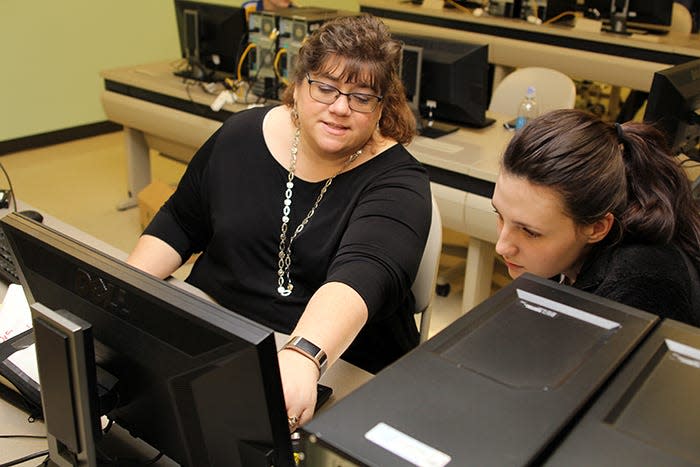Kent State's new cybercriminology program aims to combine technical, sociology studies

Students interested in crime and technology can learn more about subjects and the fields in which these skills can be applied starting this fall at Kent State University.
The university will begin offering a Bachelor of Science cybercriminology major, with classes fully online, in addition to a mostly online delivery at all Kent State campuses.
Hedi Nasheri, a professor in the department of sociology and criminology, said those with the skills to help prevent and solve technology-related problems will find numerous job opportunities in both the public and private sector.

"There is a real shortage in computer skills at the federal level," Nasheri said. "All fields combined — the IRS, National Security Council, IRS, FBI, just to name a few — all are mandated to modernize. Technical skills are a really, really important part of that. People who are computer savvy and who can understand operation programs and software and how to automate processes in the industry are needed."
Last year, when she was putting together information to present to university officials why such a major was needed, Nasheri said that there were more than 750,000 jobs going unfilled in the public sector. Today, that number has swelled to nearly a million.
"That isn't even going into the private sector," Nasheri said. "My field is technology and computers in crime. I know how much the FBI is in need of technical skills. They've created these sections in their agencies, and they can't fill third of these positions."
According to information from Kent State University, students will be well prepared for work in a myriad of professional positions ranging from security/intelligence analysts and investigators to network and security administrators. The cybercriminology major will be multidisciplinary, with contributing faculty and coursework from the Department of Sociology and Criminology in the College of Arts and Sciences and the Information Technology program in the College of Applied and Technical Studies.
A few of the fields students could go into once they graduate include compliance departments, legal departments, even supply chain and purchasing issues, Nasheri said. Any company that uses computers could use the skills this major would teach.
Shelley Marshall, the chair for the University Council on Technology, said Kent State already offers classes in cybersecurity. What makes this program unique, she said, is that it intersects criminology, sociology and information technology.

"It's giving a unique skill set to these folks," Marshall said. "We expect this field to grow 34% through 2025, which is a huge number of people."
The new major will cover more than ransomware, data breaches, email scams and securing network boundaries; it will also get into the sociology of the criminal mindset and what prompts criminal behavior.
What's more, graduates of the program can earn a good living — especially with the high demand, Nasheri said.
"These graduates can make a handsome living because of the shortage," Nasheri said. "Depending on geographical area, an undergrad with a good record and some practical experiences from internship can expect (an annual salary of) $60,000 or more. In the major metro areas, it could be six figures."
Reporter April Helms can be reached at ahelms@thebeaconjournal.com
This article originally appeared on Akron Beacon Journal: New cybercriminology major will be offered at Kent State

